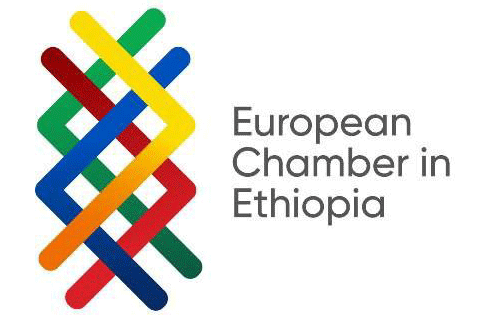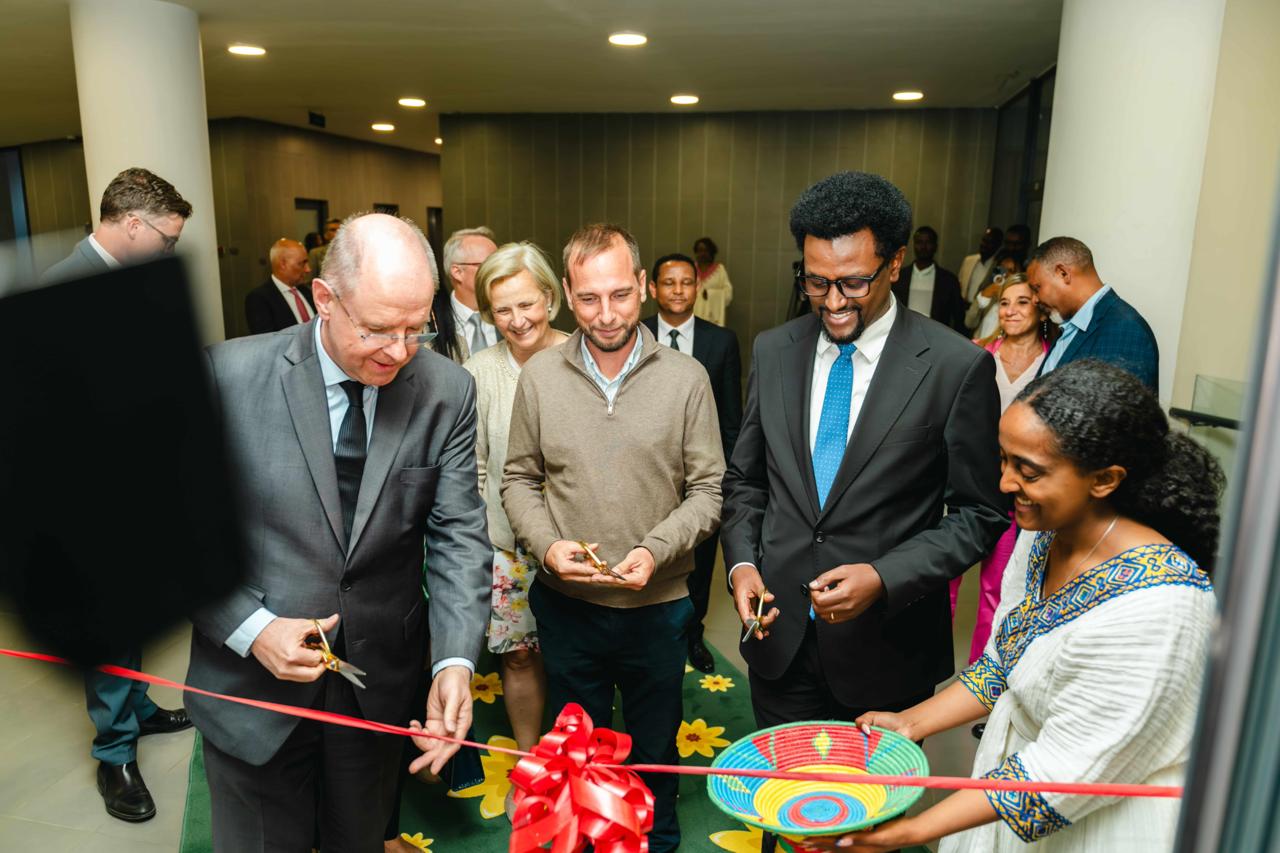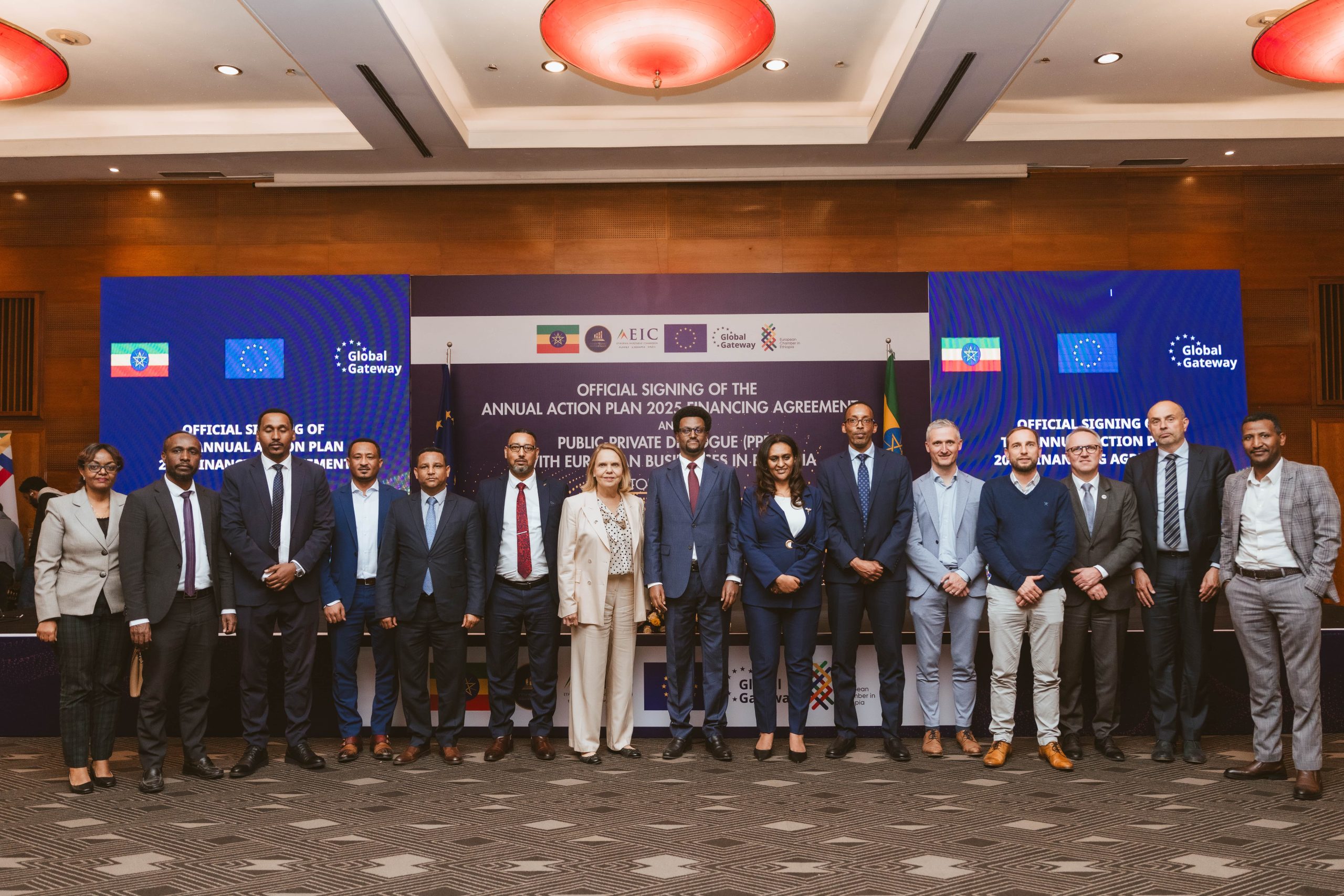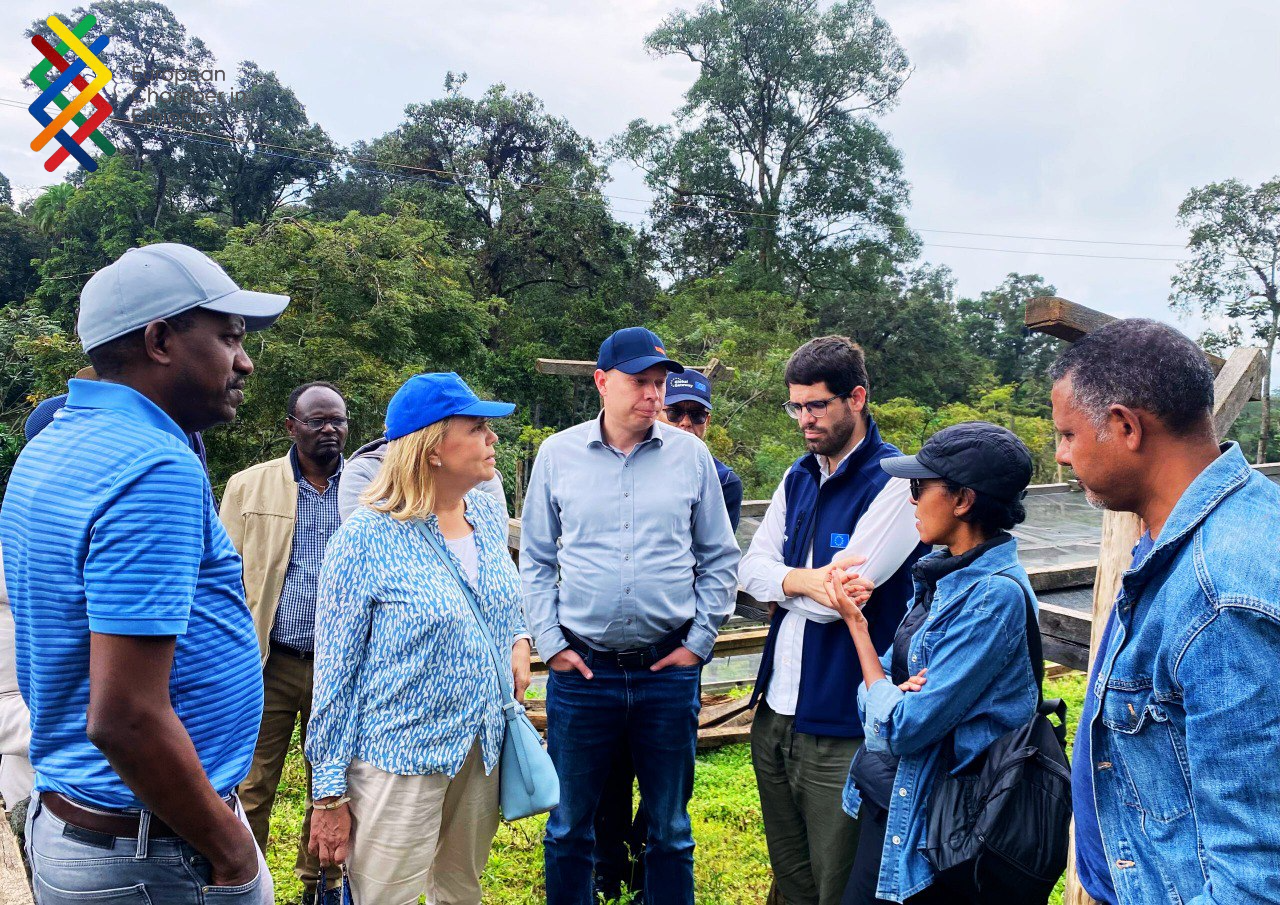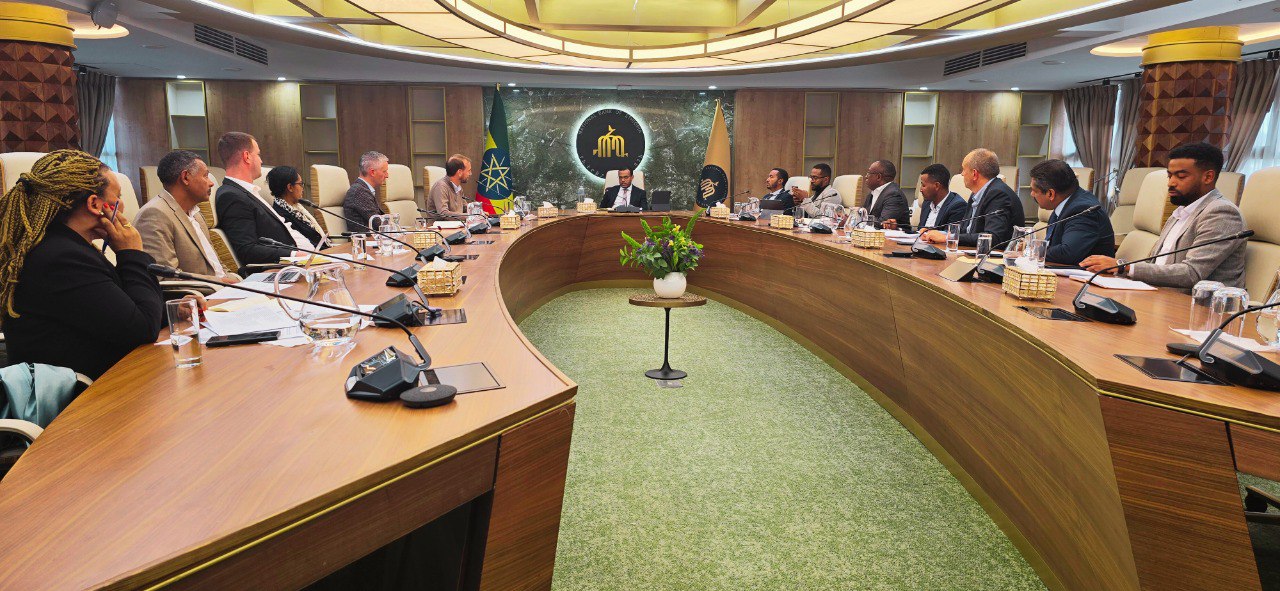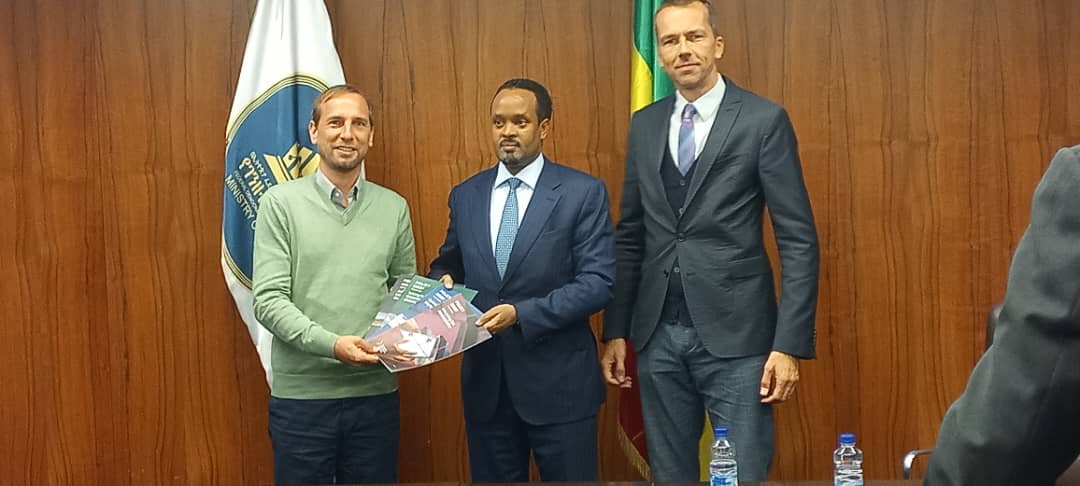
EuroCham and Ministry of Finance Hold Technical Meeting to Address Challenges Facing Foreign Direct Investment in Ethiopia
A technical meeting between the Ethiopian Ministry of Finance and representatives from the European Chamber in Ethiopia (EuroCham) and the European Union Delegation was held on July 24, 2024, aiming to address key challenges faced by European foreign direct investors in the country. The meeting was attended by H.E. Ahmed Shide, Minister of Finance, alongside senior officials from the Ministry and EuroCham Board members, including leaders from various sectors such as agriculture, logistics, and manufacturing.
The Minister opened the meeting by extending a warm welcome to the Charge d’affaires of the European Union Delegation to Ethiopia, Dr. David Krivanek. He acknowledged the EU’s role as a vital trade partner, emphasizing the significance of the ‘Everything But Arms’ (EBA) initiative, which allows Ethiopian goods to enter European markets tariff-free. He noted that Ethiopia’s exports to the EU reached EUR 688 million in 2023, marking a 40% increase over the last five years and that Europe collectively constitutes the largest and most consistent development partner.
Dr. David expressed appreciation for the opportunity to engage with the Ministry and highlighted the EU’s ongoing commitment to supporting Ethiopia amid various challenges. He pointed out that the EU remains the second largest trade partner for Ethiopia and a significant source of Foreign Direct Investment (FDI). However, he outlined persistent issues hindering investment, including limited access to foreign exchange, inconsistent customs valuations, and bureaucratic hurdles.
During his remarks, Ben Depraetere, Board Chair of EuroCham, outlined several key issues impacting the investment landscape for European companies operating in Ethiopia. Among the foremost challenges are difficulties related to customs valuation and tax assessment and audit challenges that European businesses encounter. It was pointed out that the current processes often lack transparency and consistency, creating uncertainty for investors. Furthermore EuroCham stressed that the current audit appeal procedure is problematic as companies are required to deposit 50% of the tax claim in case they want to appeal and a further 25% if further appeal is required. EuroCham highlighted that unfounded tax claims can severely strain company liquidity, potentially leading to business closures. This would have detrimental consequences for employment and sustainable revenue generation. Furthermore it may open doors for corruption with auditors seeking personal gains. The Minister responded that while everyone has a responsibility to contribute to revenue generation, it should not hinder legitimate businesses. The Minister invited EuroCham to propose suggestions and best practices on tax appeal procedures. EuroCham also highlighted challenges in accessing foreign loans due to the 5% interest rate cap.
Regarding VAT, the minister explained that the increase in VAT on consumer goods is part of the drive to increase the tax to GDP rate from its current 7% to 11% in 4 years time. He emphasized that the strategy is being implemented with a focus on protecting the poor. EuroCham noted that the recent VAT reforms have removed the exemption for animal feed and vegetable seedlings. This change will affect smallholder farmers and consumers as VAT will now be passed on to end consumers for animal products and vegetables. The Minister acknowledged the remarks and assured EuroCham that the matter would be investigated further.
Finally, EuroCham pointed out significant logistical challenges within Ethiopia’s coffee sector, emphasizing the need for improved infrastructure and support systems to facilitate smoother operations for foreign investors in this vital industry. This is particularly urgent given the impending EU Deforestation Regulation, which necessitates timely shipments. The Minister took note and expressed his commitment to address the booking and system issues related to ESLE and Ethiopian Railway Corporation with the Ministry of Transport and Logistics.
The Minister concluded by emphasizing that the issues raised affected not only European investors but also all foreign investors and local businesses. Hence addressing these topics will lead to improving the business climate for all.
The meeting served as a platform for open dialogue, with participants agreeing to systematically address these challenges to enhance the investment climate in Ethiopia. During the meeting, EuroCham handed a copy of its policy briefs on tax, customs, foreign exchange and land access to the Minister. EuroCham members expressed optimism about the potential for collaboration between the chamber and the Ministry of Finance, aiming to create a more conducive environment for European FDI in the country.
latest News
EuroCham Launches a New Office and FDI Incubation Center
February 1, 2026
EU and EuroCham Sign Grant to Boost Ethiopia’s FDI competitiveness
November 22, 2025
EuroCham Networking Event Discusses New Income Tax Law
October 22, 2025
EuroCham Urges Reconsideration of EUDR Timeline
September 29, 2025
EuroCham Conducted Technical Discussions with Outgoing NBE Governor
September 17, 2025
